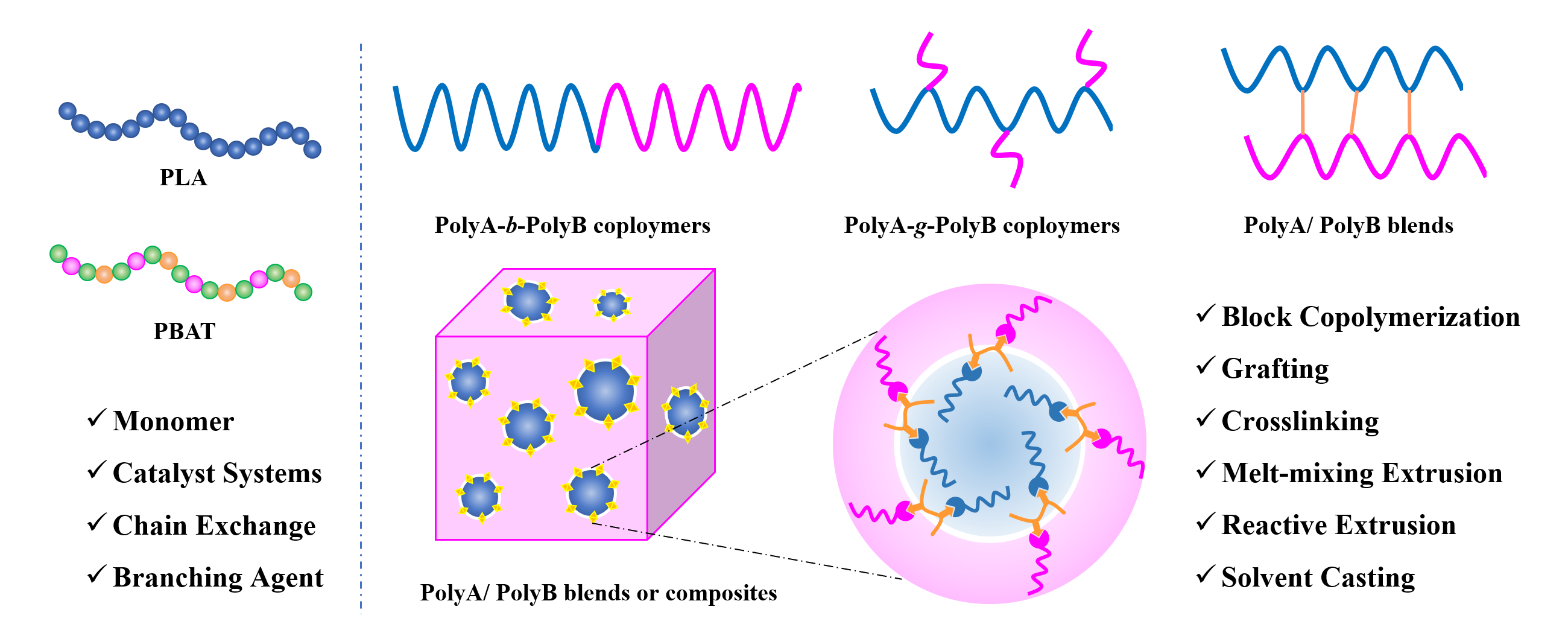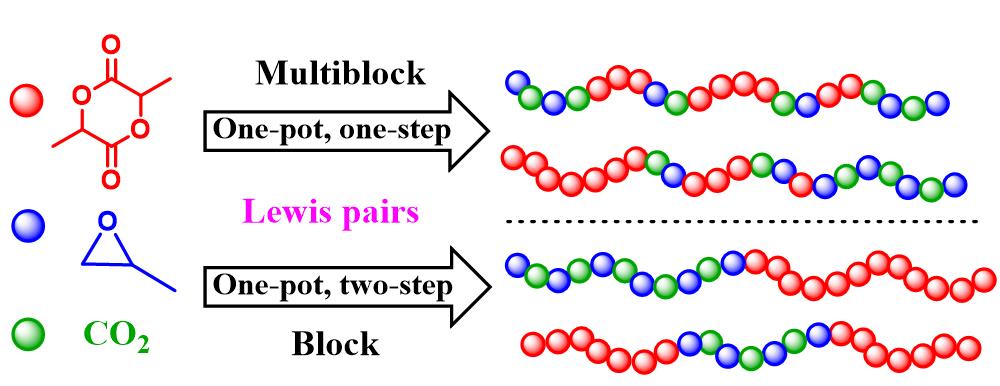Found 2 results
Open Access
Review
12 April 2023Recent Progress in Modification and Preparations of the Promising Biodegradable Plastics: Polylactide and Poly(butylene adipate-co-terephthalate)
The acquisition of high-performance biodegradable plastics is of great significance in addressing the problem of environmental pollution of plastics. Polylactide (PLA) and poly(butylene adipate-co-terephthalate) (PBAT) are the most promising biodegradable polymers and have excellent functional properties. However, low elongation at break and impact strength of PLA and low tensile modulus and flexural strength of PBAT hinder their application. A large number of studies focus on improving the performance of PLA and PBAT and broadening their applications. In terms of polymer modification, this paper summarized recent progresses in both chemical and physical modification methods for PLA and PBAT, respectively. The properties of PLA can be improved by co-polymerization, grafting, cross-linking and blending. The properties of PBAT can be improved mainly through blending with other degradable polymers, natural macromolecules and inorganic materials. This review can provide the reference and ideas for the modification of biomass-based biodegradable plastics like PLA and fossil-based biodegradable plastics like PBAT.

Open Access
Article
30 January 2023Metal-Free Lewis Pair Catalysts for a One-Pot Terpolymerization of Propylene Oxide, ʟ-Lactide and CO2
Multiblock and di-/tri-block copolymers are successfully synthesized for the first time via the metal-free terpolymerization of propylene oxide (PO), ʟ-lactide (LA) and CO2 in one-pot/one-step and one-pot/two-step protocols respectively. Firstly, triethyl borane (TEB) and bis(triphenylphosphine)iminium chloride (PPNCl) Lewis pair is employed in the ring-opening polymerization of LA, wherein the catalytic efficiency is significantly correlated to the TEB/PPNCl feed ratio. Next, a series of TEB/base pairs are selected to synthesize the PO/LA/CO2 terpolymer (PPCLA) in one-pot/one-step strategy. In PPCLA synthesis, LA exhibits the fastest reaction rate but severe transesterification is almost unavoidable, resulting in low molecular weight products. In order to prepare high-molecular-weight terpolymers, a one-pot/two-step methodology has to be applied. By this method, the copolymerization of PO/CO2 proceeds first to form poly(propylene carbonate) (PPC) macroinitiators, which triggers the polymerization of LA to polylactide (PLA), leading to PLA-PPC or PLA-PPC-PLA block copolymers. The synthesized PLA-PPC-PLA block copolymers display improved thermal stability compared with PPC.
